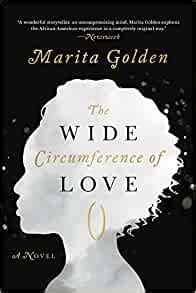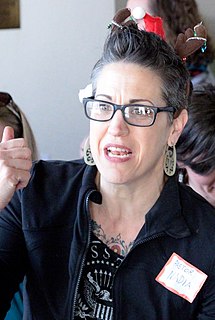A Quote by Oscar Wilde
Women love us for our defects. If we have enough of them, they will forgive us everything, even our gigantic intellects.
Related Quotes
Let us meditate until we perceive the Infinite Christ reigning in our own hearts. Let us learn to love those who love us not; and to forgive those who do ill against us. Let us break all our mental boundaries of color, creed, and nationality, and receive all - even our inanimate and animal brothers - in the endless, all embracing arms of our Christ Consciousness. This will be a true and fitting celebration of the coming of Jesus Christ to this earth.
We black women must forgive black men for not protecting us against slavery, racism, white men, our confusion, their doubts. And black men must forgive black women for our own sometimes dubious choices, divided loyalties, and lack of belief in their possibilities. Only when our sons and our daughters know that forgiveness is real, existent, and that those who love them practice it, can they form bonds as men and women that really can save and change our community.
True friends see who we really are, hear our words and the feelings behind them, hold us in the safe harbor of their embrace, and accept us as we are. Good friends mirror our best back to us, forgive us our worst, and believe we will evolve into wise, wacky, and wonderful old people. Dear friends give us their undivided attention, encourage us to laugh, and entice us into silliness. And we do the same for them. A true friend gives us the courage to be ourselves because he or she is with us always and in all ways. In the safety of such friendships, our hearts can fully open.
I'm not saying that all women are blameless - all women are not. There are women with despicable characters who are cruel and terrible and some of them are mothers. But why do we blame our mothers more than our fathers? We let our fathers get away scot-free. We hardly even knew who they were in many cases, given the way this culture raises kids, and they may have been quite cruel. They may even have raped us as children, but even if they raped us, we will blame our mothers for not protecting us instead of blaming our fathers who actually did it.
One cannot be honest even at the end of one's life, for no one is wholly alone. We are bound to those we love, or to those who love us, and to those who need us to be brave, or content, or even happy enough to allow them not to worry about us. So we must refrain from giving pain, as our last gift to our fellows.
When an injustice happens, we want to be vindicated. People feel that if they forgive the person who hurt them, then they will continue to take advantage of them or not take responsibility for what they did wrong. If we're honest, we'll admit that we usually want the person who hurt us to pay for what they did. We can't get past this until we get the revelation that only God can pay us back. He is our Vindicator - He will heal and restore us if we will trust Him and forgive our enemies as He has told us to do.
The storyteller is deep inside everyone of us. The story-maker is always with us. Let us suppose our world is attacked by war, by the horrors that we all of us easily imagine. Let us suppose floods wash through our cities, the seas rise . . . but the storyteller will be there, for it is our imaginations which shape us, keep us, create us - for good and for ill. It is our stories that will recreate us, when we are torn, hurt, even destroyed. It is the storyteller, the dream-maker, the myth-maker, that is our phoenix, that represents us at our best, and at our most creative.
Our Father awaits us with great zeal and desire, and with love He will see us returning from afar, and He will look upon us with compassionate eyes, and we shall be dear to Him, and He will fall on our neck running and embrace us and kiss us with His Holy Love. He will not reproach us, and He will no longer remember our sins and iniquities, and all the holy angles and all His elect will begin to rejoice over us.







































